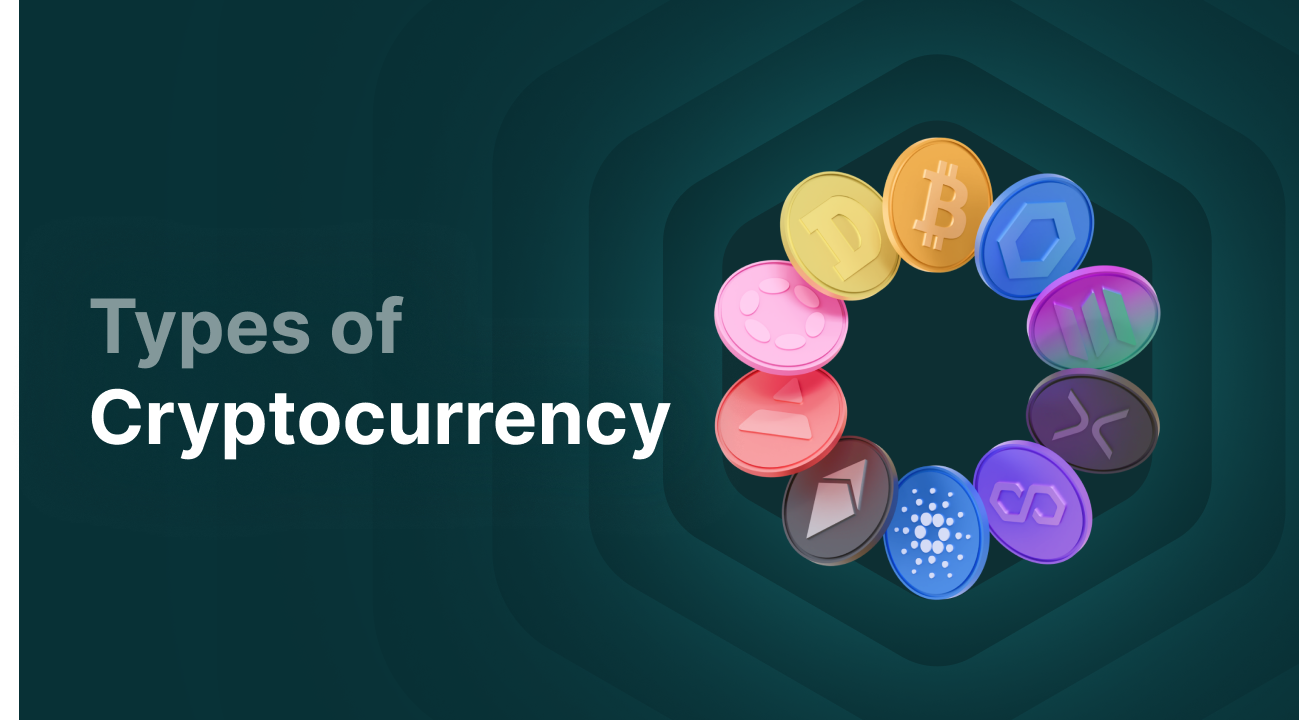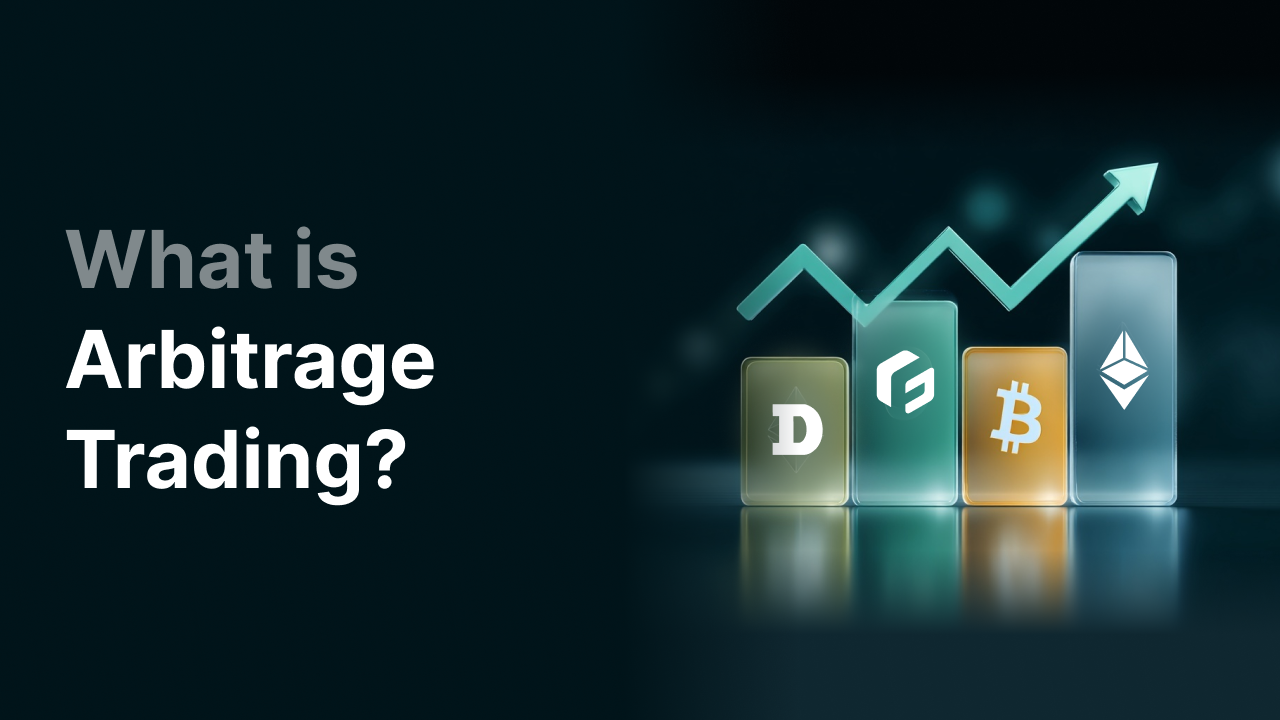Types of cryptocurrencies: an overview of all types of cryptocurrencies

Types of cryptocurrencies
Since the introduction of Bitcoin in 2009, the world of cryptocurrencies has gained momentum. Where it once began with one revolutionary coin, thousands of different types of crypto coins have now been developed, each with its own function, vision and target market. These crypto coins also called cryptocurrencies can be divided into several categories based on their purpose and application. In this article, we will take you step by step into the world of crypto coins and explain what types there are, what they do, and what to look out for.
Key Takeaways
- Crypto coins are digital currencies that run on the blockchain, such as Bitcoin.
- There are many types of cryptocurrencies, each with its own function, vision and target market.
- Coins are cryptocurrencies with their own blockchain.
- Tokens are cryptocurrencies built on an existing blockchain and often represent a specific purpose.
What exactly are crypto coins?
Crypto tokens are digital coins that use blockchain technology to record, secure and verify transactions. Unlike traditional money, they are completely digital, often decentralized, and are not managed by central banks or governments. Each crypto currency has its own blockchain or runs on another project's blockchain. In the crypto world, all kinds of coins emerge with different functions.
Coins, altcoins and tokens: the differences
Coins and altcoins
The term "coin" usually refers to a cryptocurrency with its own independent blockchain. Bitcoin (BTC) is the best-known example of this, with a completely self-contained infrastructure. Other currencies such as Ethereum (ETH) and Ripple (XRP) also have their own networks. All cryptocurrencies except Bitcoin are called Altcoins.
Tokens
Tokens are cryptocurrencies built on top of an existing blockchain, such as Ethereum. They use the network and infrastructure of an existing coin, but often represent a specific purpose or project. Tokens are created through smart contracts and can have various uses, such as access to a service, voting rights in a governance process, or a stake in a project. Nowadays there are so many different types of crypto tokens, we list the most important ones for you:
- Stablecoins
- Technology coins
- DeFi tokens
- Governance tokens
- Exchange tokens
- Store of value coins
- Game tokens
- Fan tokens
- Digital cash tokens
- Privacy tokens
- Utility tokens
- Security Tokens
- Asset-backed tokens
- Meme coins and shitcoins
Stablecoins
Stablecoins are designed to limit price volatility. Their value is tied to a stable asset such as the U.S. dollar, the euro or even gold. The best known stablecoins are USDT (Tether), USDC (USD Coin) and BUSD (Binance USD). These coins are intended as safe havens within the crypto world, especially in times of large price fluctuations. Stablecoins are used as a means of exchange on exchanges, as a means of storage, or as a bridge between fiat money and crypto. Besides traditional stablecoins, there are also algorithmic stablecoins, such as the now infamous TerraUSD (UST), which use clever formulas to try to maintain stability, something that does not always go well.
Technological coins
Technological crypto coins such as Ethereum (ETH), Cardano (ADA), Polkadot (DOT) and The Graph (GRT) are used to build and run decentralized applications (dApps). These coins enable smart contracts, which allow developers to write self-executing code without third-party intervention. These coins are the backbone of Web3: the new, decentralized Internet. They are used to pay transaction fees (gas fees), host applications and perform complex financial processes.
DeFi tokens
DeFi, or Decentralized Finance, is an umbrella term for financial services that operate without banks or intermediaries. DeFi tokens provide access to platforms where you can borrow, lend, trade, staker or buy insurance. All of these processes are fully automated via smart contracts. Consider tokens such as Aave (AAVE), Uniswap (UNI) and Compound (COMP). These tokens are often used as collateral or rewards and are essential within the ecosystem of DeFi platforms.
Governance tokens
governance tokens give users control over the development of a project. Owning these tokens allows you to vote on important decisions such as software updates, distribution of funds or the direction of the project. This makes crypto decentralized not only in terms of technology, but also in terms of governance. Well-known examples are Maker (MKR) and Compound (COMP). In some cases, users can also submit their own proposals, actively contributing to the future of the network.
Exchange tokens
Exchange tokens, also called native tokens, are coins that belong to specific cryptocurrency exchanges. The best known is Binance Coin (BNB), Binance's native token. Other examples include UNI (Uniswap) and CAKE (PancakeSwap). These tokens are often used within the exchange ecosystem, for example, to pay trading fees at a discount, participate in staking, or obtain voting rights. Exchange tokens strengthen ties to the platform and encourage trading activity on the platform.
Store of value coins
Store of value coins are cryptocurrencies that are primarily used to maintain or even grow their value over the long term. The best-known of course is Bitcoin, which is seen by many investors as a digital alternative to gold. These coins often have a limited supply, creating scarcity and theoretically increasing their value as demand increases. Store of value coins are popular with long-term investors, also called HODLers.
Game tokens
Game tokens are crypto tokens used within blockchain games. They often serve as payment for in-game purchases such as skins, weapons, land, or other digital items. Well-known examples include Axie Infinity (AXS), Decentraland (MANA) and The Sandbox (SAND). Some games work with a play-to-earn model, where players can actually earn money by gaming. Game tokens allow ownership of in-game assets to be recorded on the blockchain, allowing players to trade or store their assets.
Fan tokens
Fan tokens are digital assets often issued by sports clubs, music artists or other public figures. These tokens allow fans to buy merchandise, participate in voting rounds on club matters, or gain access to exclusive events. Well-known examples are the fan tokens of soccer clubs such as Juventus and Paris Saint-Germain. The idea behind fan tokens is to strengthen the bond between supporters and their favorite club or artist, giving fans a form of governance and exclusivity.
Digital cash tokens
Some crypto tokens are specifically designed to serve as digital cash tokens. Consider Litecoin (LTC) and Bitcoin Cash (BCH). These tokens are fast, cheap and suitable for daily transactions. Their purpose is to function as cash. While many cryptocurrencies can technically be used as payment methods, digital cash tokens are specifically optimized for speed, low transaction costs and scalability.
Privacy tokens
Privacy coins are designed with anonymity in mind. They ensure that transactions cannot be traced to specific individuals or amounts. Monero (XMR), ZCash (ZEC) and Secret (SCRT) are well-known examples. These coins use advanced techniques such as stealth addresses, ring signatures and zero-knowledge proofs. Privacy coins are under fire in many countries for their use in criminal activities. Therefore, these privacy tokens are banned in many countries and have been removed from many platforms. By the way, they also offer protection to people living in countries where censorship or strict government surveillance is an issue.
Utility tokens
Utility Tokens provide access to a specific product, service or ecosystem. They function as a kind of subscription that allows you to use a platform, get discounts, or access certain features, for example. A good example is the Basic Attention Token (BAT), which is used within the Brave browser to reward users for viewing ads. Utility tokens typically have no investment function, but represent purely utility within a platform.
Security tokens
Security tokens serve as property rights for external assets, such as stocks, real estate or bonds. They are issued through a Security Token Offering (STO) and are subject to financial laws and regulations. These tokens often provide voting rights, profit distribution or dividends and make traditional investments more accessible and efficient through tokenization. Because they are regulated, issuers must adhere to strict guidelines from regulators, providing additional investor protection.
Asset-backed tokens
Asset-backed tokens are backed by real assets such as gold, fiat money, real estate or commodities. Their value is directly tied to the underlying asset, providing a degree of stability and confidence. These tokens combine the advantages of blockchain (speed, transparency) with the security of tangible assets. They represent an interesting bridge between traditional and digital finance.
Meme coins and shitcoins
Meme coins originated as a joke, often based on popular Internet memes. The best known are Dogecoin (DOGE) and Shiba Inu (SHIB). Although often launched without a clear purpose, they can still become wildly popular thanks to a strong community or support from well-known figures. Shitcoins are a broader term for crypto coins with no clear value or application. They are often launched quickly, with no solid foundation, and are notorious for rug pulls and pump-and-dump schemes. Investing in this category is risky, but speculatively interesting for some.
Please note: Investing in cryptocurrencies involves risk. Invest only what you are willing to lose.
The most popular cryptocurrencies at Finst
Now that you know about the different types of cryptocurrencies, we are now going to name the top 10 most important cryptocurrencies right now. These crypto coins can all be bought on Finst's platform.
Bitcoin (BTC) – Store of value coin
Bitcoin is the first and best-known cryptocurrency and is often thought of as digital gold. It has the largest market capitalization and is used worldwide as a store of value. Bitcoin remains the trendsetter in the crypto market.
Ripple (XRP) – Technological coin
Ripple is designed for fast and cheap cross-border payments. It is mainly used by financial institutions. XRP has a strong market capitalization and remains a major player in the payments industry.
Ethereum (ETH) – Technology coin
Ethereum is a platform for decentralized applications (dApps) and smart contracts. It plays an important role in DeFi and blockchain innovation. The transition to Ethereum 2.0 makes it more efficient and energy efficient.
Solana (SOL) – Technology coin
Solana is known for its speed and low transaction costs, making it a popular platform for dApps and DeFi. The network can process thousands of transactions per second. Solana is growing rapidly in the crypto world.
Binance Coin (BNB) – Exchange coin
Binance Coin is the native coin of the Binance exchange and offers discounts on trading fees. BNB is also used for token sales and participation in the Binance ecosystem. It has proven to be a versatile and valuable cryptocurrency.
USD Coin (USDC) – Stablecoin
USD Coin is a stablecoin that is pegged to the U.S. dollar, maintaining a stable value. It is widely used in crypto trading and as a store of value. USDC offers reliability in a volatile market.
Sui (SUI) – Technological coin
Sui is a blockchain focused on speed and scalability. It offers efficient processing of thousands of transactions per second. Sui is rapidly becoming popular for DeFi and dApp development.
Cardano (ADA) – Technology coin
Cardano focuses on secure and sustainable blockchain. The platform uses peer-reviewed research and is a serious competitor to Ethereum. Cardano is one of the most progressive blockchain projects.
Dogecoin (DOGE) – Memecoin
Originally started as a joke, the meme coin Dogecoin has grown into a popular cryptocurrency. It's often used for micro-payments and online donations. Dogecoin has a big, active community.
Tron (TRX) – Technological coin
Tron focuses on decentralizing digital content and creating dApps. The network offers fast and cheap transactions.
Final Thoughts
The crypto world has changed a lot since the launch of Bitcoin. There are now many different types of crypto-currencies, each with its own function and application. Categorizing crypto coins based on their use and purpose makes it easier to understand their role and value within the crypto market.




